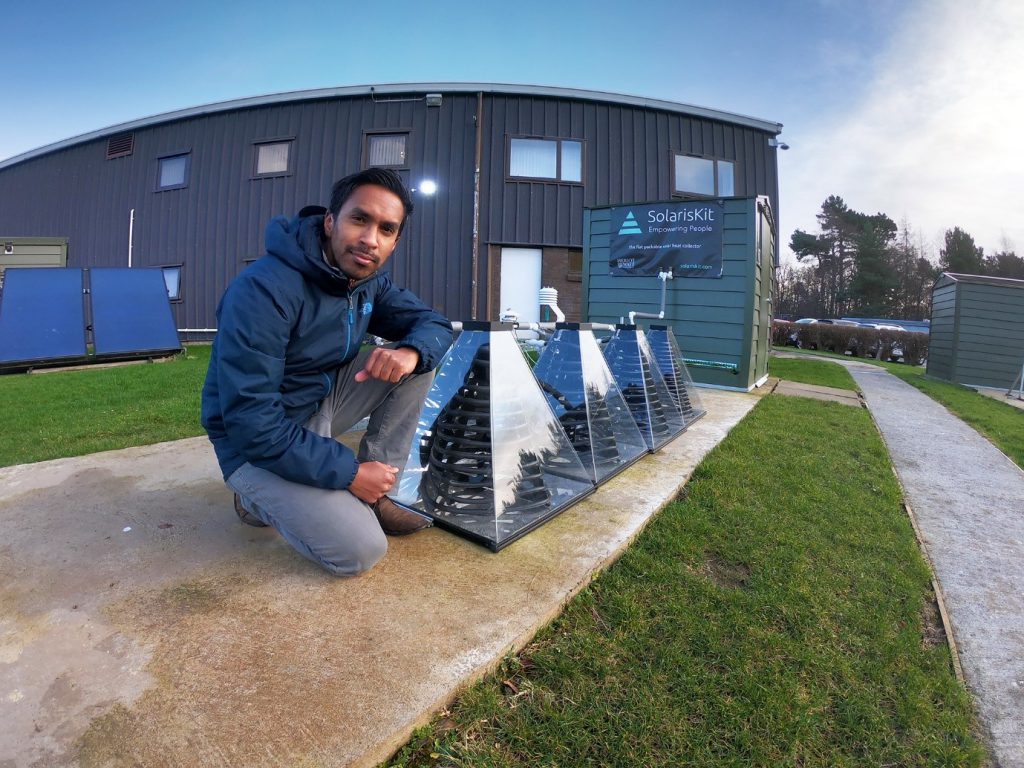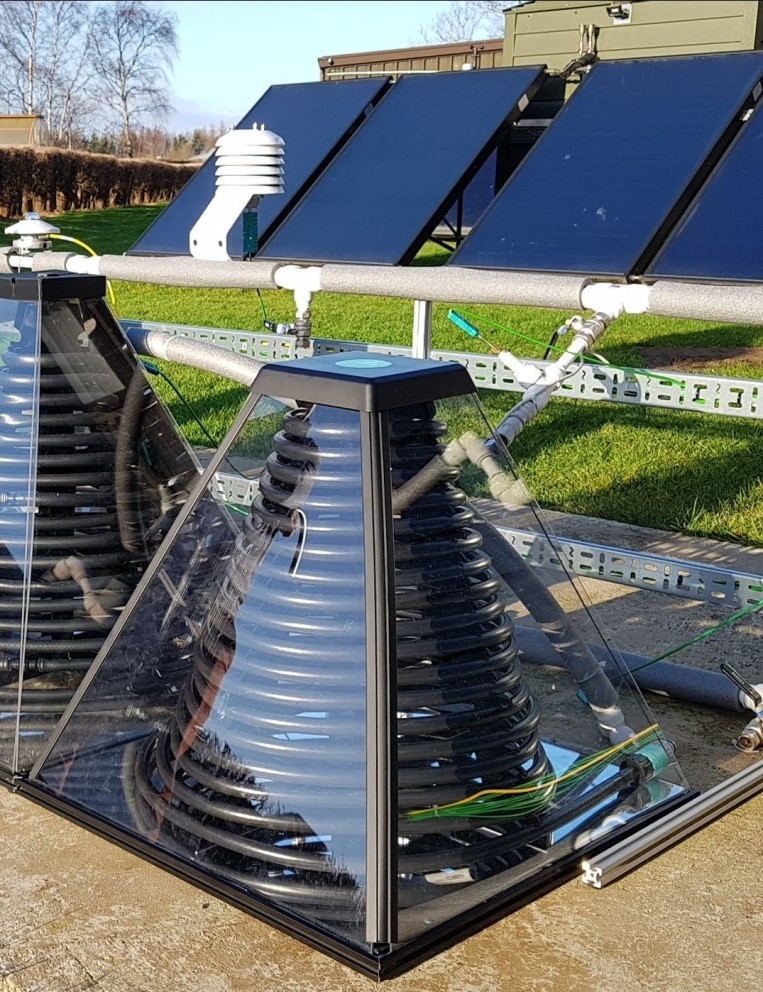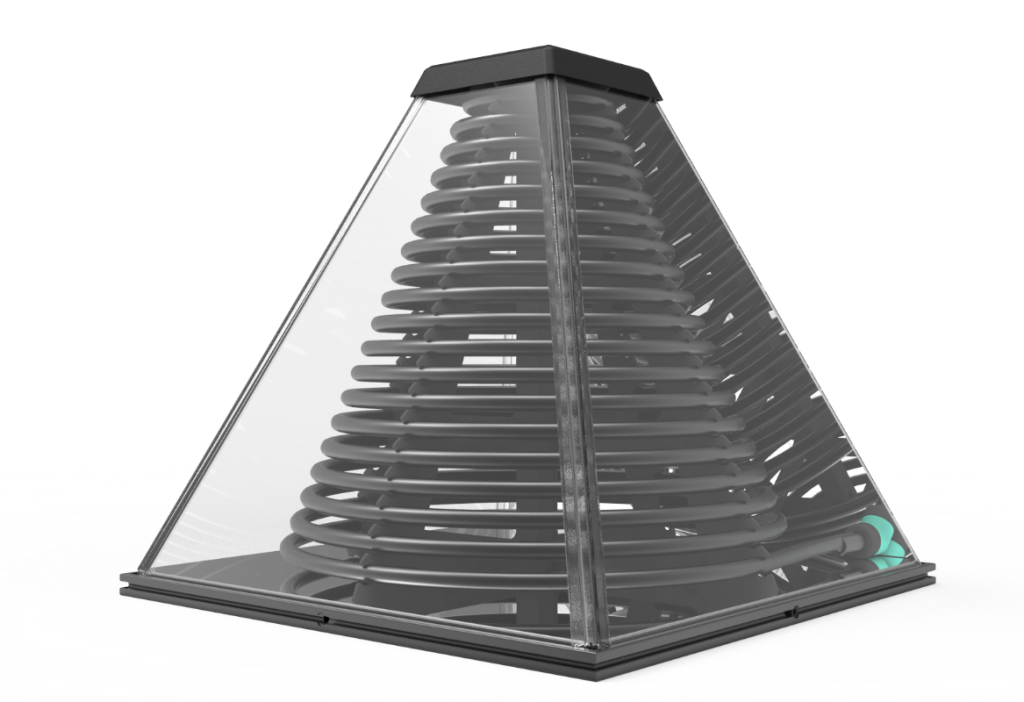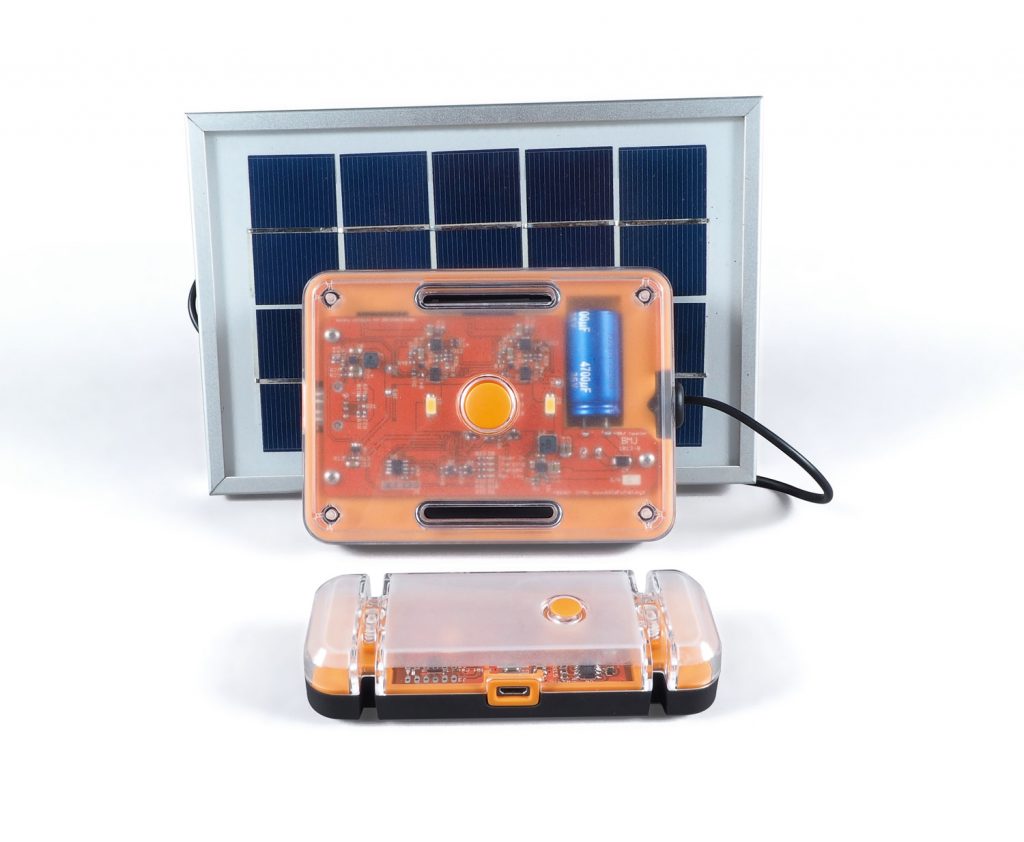I recently met Dr Faisal Ghani of Heriot-Watt University to accept his generous donation of a flat-pack solar energy collector for the collection of National Museums Scotland.

Dr Ghani met me in the café of the Edinburgh Centre for Carbon Innovation, a local hub of thought and ingenuity targeting international energy and climate issues. The energy collector was sitting on one of the café’s tables demonstrating that even when assembled, it is neat and portable, not to mention aesthetically appealing, being a shiny acrylic pyramid with a black coil sitting on a reflective base. Each of these elements is vital to the function of the Collector.

Essentially, the SolarisKit Collector is a beautifully simple solution to a complex matrix of problems. Dr Ghani, a chartered mechanical engineer from Australia, who has lived in Scotland and taught at Heriot-Watt since 2015, was struck to discover that in parts of the developing world, heating water can make up as much as 70% of a household’s total energy bill. Hot water is vital for many applications, from household cleaning and personal hygiene to aquaculture farming. Yet it places a financial strain on some of the world’s poorest households and is a burden for energy grids struggling to meet demands.
Not only that, but heating accounts for around 40% of the world’s energy-related greenhouse gas emissions. Emissions from many areas of the developing world are much greater than those from wealthier nations. Many of these geographical regions have an abundance of sunshine, so it is natural to look to solar energy as a solution to these problems. However, the technology to generate solar power on a large scale is expensive and governments have been reluctant to invest. Dr Ghani realised that the solution had to be small scale and designed for use by individual households or businesses. It had to be low cost, easy to transport and easy to install and maintain. Dr Ghani formed SolarisKit to develop his ideas in partnership with Heriot-Watt. He says:
“There are some big challenges facing the world such as tackling climate change, but the solutions don’t need to be complicated. The response to climate change is becoming increasingly urgent, at SolarisKit we wanted to develop a solution that could be implemented quickly and at a large scale.”
Dr Faisal Ghani
Award-winning technology with a bright future
The resulting SolarisKit Collector appears to set out everything that Dr Ghani wanted to achieve. Flat-packed, it is incredibly straightforward to transport. It can be carried on the back of a bicycle meaning that it can easily be taken to hard to reach areas where transport is hard to come by. It is simple to install, and the SolaristKit website states that the installation process takes about 30 minutes and can be accomplished by one person, with no specialist training or tools. Presumably, repair is also simple, although Dr Ghani concedes that SolarisKit is still looking for ways to ensure that components are replaceable with widely available materials.

Due to its prismatic geometry, the SolarisKit Collector can heat water up to 60°C, depending on weather conditions. Sunlight strikes the internal absorber coil which results in an increase in its temperature. Water, which is circulated through the absorber coil using a small pump is then heated resulting in carbon-free hot water. The water is stored in an insulated tank, ready for use. It is hot enough for most domestic purposes such as hygiene and laundry, and would only take a relatively small amount of additional energy to boil for cooking or sterilisation. The technology is scalable and multiple Collectors can be used in tandem to heat more water, depending on the intended application.

SolarisKit was given an enormous boost when it won in the Converge Impact Challenge in late 2019. This award recognises innovative new projects with environmental missions at their core and enables small start-up and micro-businesses to develop their products or services. In early 2020, even more good news came with the announcement that SolarisKit had been awarded £250,000 from Innovate UK’s Energy Catalyst programme. This will enable the company to start pilot trials of the Collector in Rwanda later this year. Recently, Dr Ghani has been awarded an Enterprise Fellowship from the Royal Society of Edinburgh so that he can focus on developing the technology and business. He says:
“Recent funding awarded by Innovate UK and the Royal Society of Edinburgh is a big boost for us at SolarisKit. It will provide us with the essential funding to develop our collector, recruit additional staff, and conduct pilot trials in Rwanda. Our goal is to install up to 100 collectors to demonstrate the impact they will have in reducing household and business energy costs, while reducing carbon emissions linked to heating.”
Dr Faisal Ghani
The SolarisKit Collector donated to National Museums Scotland by Dr Ghani marks a pivotal stage in the development of this technology. I am looking forward to seeing how it grows from here and has a positive impact on both the planet and the people who need it most.
Within our collection, it sits alongside other recent acquisitions, such as the Solar What?! solar lantern as technology developed locally to National Museums Scotland that looks at tackling fuel poverty and climate change at an individual and personal level, in terms of both developer and user. This is an exciting area of collections development, especially as so much innovation is taking place in Scotland. With the upcoming United Nations Climate Change Conference in Glasgow later this year, this momentum can only grow and I am excited to think about how National Museums Scotland may be able to reflect this in its collection.

